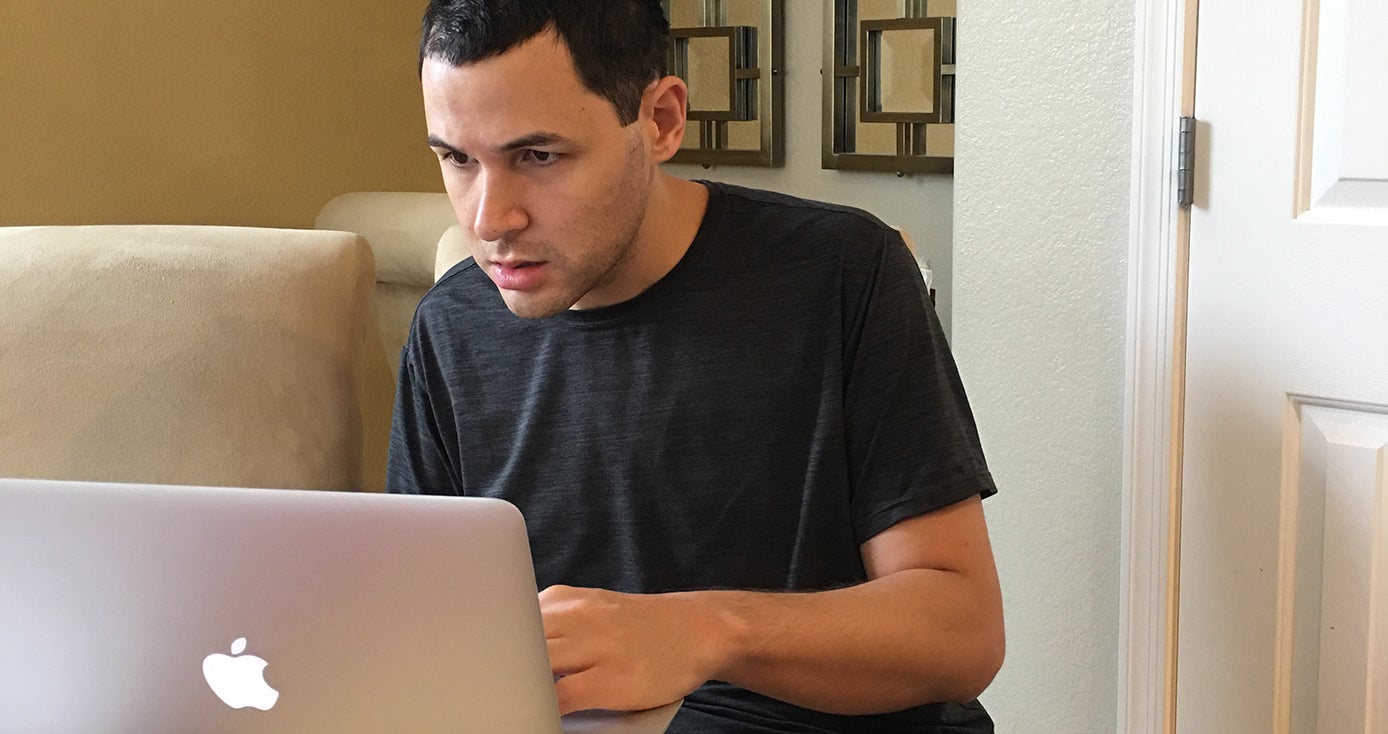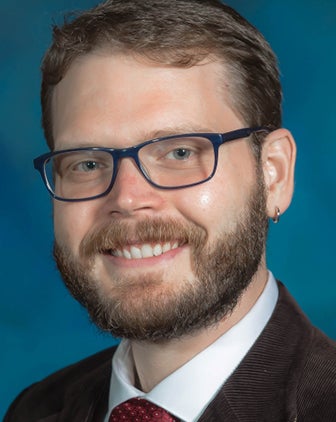
Subscribe to Pittwire Today
Get the most interesting and important stories from the University of Pittsburgh.Games Strive for Therapy, Fun and Inclusivity
When someone suffers a stroke, head injury or disease, they may lose the ability to understand or express speech. This condition, which can lead to extreme social isolation and depression, is called aphasia, and more than two million Americans have it.
However, most people have never heard the term “aphasia,” according to the National Aphasia Association.
“It’s a really common disorder that has low public awareness,” said Will Evans, an assistant professor in the Department of Communication Science and Disorders at the University of Pittsburgh School of Health and Rehabilitation Sciences. “Services are really limited, and we’re not addressing long-term recovery needs. Most people don’t get treatment after the first year or so.”
Evans has been researching ways to help those with aphasia better communicate with others. With the help of game designers, speech pathologists and aphasia community members, he and his team at Aphasia Games for Health are testing interactive games to make improving communication fun.
Support for health innovators
Aphasia Games for Health was a finalist for the Pitt Innovation Challenge in 2019. In 2020, the team went through the Innovation Institute's Pitt Ventures First Gear program, which provided some additional funding for prototype development and conducting community interviews.
There’s still time to apply for the 2021 Pitt Innovation Challenge. Submit your idea by May 3.
In summer 2020, they added three professional game designers and three aphasia community members to the design team to develop three fully playable game prototypes. The prototypes are free to the community for playtesting and refinement. They include: a word game where players generate words from different categories that start with a given letter, then combine their own and other's responses to tell stories about cats; a guessing game similar to 20 Questions adapted specifically for play through group video conferencing; and an improv card game with memory demands where players take turns auditioning for a movie using specific words, and can get help from the other players when they can't remember their lines.
“Games are really motivating; they can teach and they connect people,” Evans said. “We didn’t invent the idea of games for aphasia, but we’re finding ways to be more inclusive, accessible and creative for people within the aphasia community.”
These include easy-to-understand instructions, being low-cost and being helpful for multiple years of recovery. And even though the COVID-19 pandemic has made development and game-playing more difficult, the team has adjusted to make games virtual-friendly.
“We want these games to be therapeutic, fun and adaptive,” said Kathryn Hymes, who along with her partner, Hakan Seyalioglu at California-based Thorny Games, is one of the designers involved with developing the games. “What we found in interacting with speech language pathologists and people within the aphasia community is that people are feeling isolated in their road to recovery. Games are a great encapsulation of giving therapies back to the community.”
Hymes said there are numerous games on the market today that can easily be adjusted to be aphasia-friendly, and hopes Aphasia Games for Health will be used as a template for these games to do so.
“And although we are designing our games to be therapeutic, we need to make sure they produce results and live up to the standard of evidence-based treatment. This will require testing in high-quality community-based clinical trials, so we will be working towards large-scale PCORI funding to support this level of research,” Evans said.
The project team also consists of the Aphasia Recovery Connection and Jessica Hammer, co-director of the OHLab at Carnegie Mellon University.
Project origins and patient input
Pitt’s Evans began working on Aphasia Games for Health after meeting with Carol Dow-Richards and her son, David Dow. The three met in 2018 at a Project Bridge gathering, a PCORI-funded initiative designed to bring the aphasia community, clinicians and researchers together in the research process.
The mother-son duo are co-founders of the nonprofit Aphasia Recovery Connection and have been working with Thorny Games for game design, including testing and consultation.
David Dow has been recovering from global aphasia—a severe form of aphasia that affects writing, reading, hearing comprehension and speech—since suffering a stroke in 1995 at 10 years old.
“I could not talk, read, write or understand and paralyzed on the right side,” said Dow. “It was very hard, especially the first years when I couldn’t talk. I had to go to school and kids made fun of me. It made me very sad and I was often excluded, and people didn’t understand that I was still smart and still thinking. They treated me like I was dumb.”
Today, Dow is advocating for to improve the quality of life for people recovering from aphasia and their families and friends.
He said games such as Aphasia Games for Health’s allow for practice, an important recovery step for people with aphasia. While COVID-19 has made socialization more difficult, he said playing virtually with people from around the country helps, too.
“I have made friends playing games and I know people who played games with me online who later played the same game with their grandchildren,” he said.
“I think Aphasia Games for Health is a brilliant idea. It gives people a chance to work on therapeutic language skills while socializing,” said Carol Dow-Richards. “Recovery from aphasia is a very lonely process, and the general public just doesn’t understand what it is or how to approach people with it.”
While Dow received care “every day” for years during of his recovery, thousands of hours of therapy in total, his access to services and recovery success are a big outlier, Evans said.
“The amount of treatment current offered in the current medical model is extremely limited, and generally only offered in the first year. People with aphasia can likely benefit from hundreds or thousands of hours of practice, but it just isn't available in the current medical model,” he said. “In addition, aphasia is extremely isolating and associated with high rates of depression. Therefore, people with aphasia also need fun and meaningful ways to connect with others to maintain their mental health and to keep their hope alive.”



